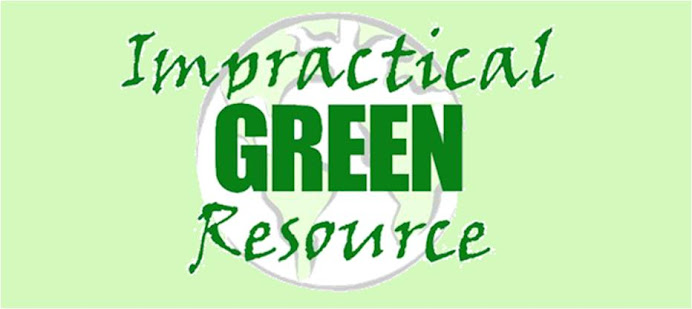(1) Low Energy Lighting and (8) Organic Food!
Low Energy Lighting
Low Energy Lighting (LEL for short) is not any specific technology or brand but the next generation of commercial and residential lighting. This could be anything from those spirally light bulbs to the really expensive LEDs you see in rich people's houses.
Impact on the Environment (13/15):
LEL is a really good solution because it goes after the problem in an entirely different way. Alternative energy technologies approach the problem as "we're going to run out of fossil fuels eventually, let's abandon ship before it gets too bad." LEL on the other hand is more like "we're going to run out of fossil fuels eventually, let's patch up the ship as much as we can so it will be a lot longer until we sink." And while reducing our energy consumption will only delay the inevitable, it sure beats freezing to death and sinking to the bottom of the ocean while hanging on to a door until for help arrives.
Practicality (10/10):
Look, light bulbs are going to burn out eventually, and when they do, just buy the more-expensive-now-but-cheaper-in-the-long-run high efficiency ones.
Sustainability (10/10):
LEL is a concept that will only continue to evolve as technology improves. What's low energy now will be high energy compared with what will be popular 10 years from now. As long as people continue to choose the more environmentally friendly option, things will only continue to improve.
Awesomeness (5/10):
While I know that I'm a huge nerd and think these are awesome, most people don't care one way or another about high efficiency lighting. It's okay, I won't hold it against you... much...
User Input (0/5):
Nope, don't see anything here.
Organic Food
Oh, Organic Food. How I have longed to talk about you in here. This is the most misunderstood and deceptive Green idea, even more misunderstood than nuclear power. Some people will disagree with me, but I look at things very practically (ironically enough) and Organic Food doesn't stack up.
Impact on the Environment (9/15):
Organic Food is good for the environment. Somewhat good, that is. It's great the pesticides aren't getting into our waterways or getting into the food we eat. And I know that I don't want to eat pesticides. But the picture isn't all sunshine and rainbows. Follow me to the next paragraph and I'll explain further.
Practicality (2/10):
The truth about Organic Food is that it just doesn't work on a large scale. One of the benefits of genetically modified food is increased yields. Increased yields means more people can be fed with less resources. One of the reasons that wealthy countries can stay wealthy and healthy is that they use crops that produce better yields. If everyone in the world switched to Organic Food, pests populations would explode and consume all of our food, which would cause starvation and droughts across the world. That may sound a bit grim, but when farmland is being destroyed by climate change already, we need all the help we can get in terms of growing more for less.
Sustainability (5/10):
Organic Food really has been around a very long time (as long as plants have been on this planet) so they'll always be around in some form. But as for their popularity among humans, right now they're a luxury. One that will quickly be cast aside if things start going downhill in terms of climate change.
Awesomeness (7/10):
Organic Food, while not awesome in my book, is a really fun thing to rub in people's faces if you feel like getting all ecotistical (Dang! I just made that word up, but I checked and someone already said it first) to your friends.
User Input (0/5):
Nope, nothing here either.
Alright, let's tally those scores!
Low Energy Lighting: 38
Organic Food: 23
Eat it, Organic Food! For everyone else that didn't lose to Low Energy Lighting, check it out tomorrow when (4) Insulation and (5) High Efficiency Toilets face off.

Toilets, purely for the awesomeness factor.
ReplyDelete